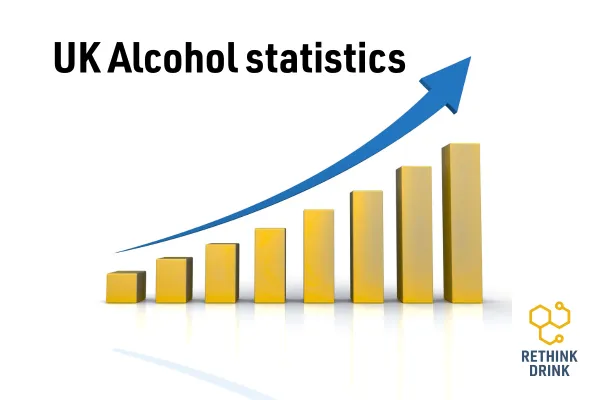
Alcohol Statistics in the UK: 25 Years of Change, Challenge and Hope
Key Takeaways:
Alcohol-related deaths have increased by over 50% in the past 20 years in the UK.
Liver disease, cancer, and cardiovascular issues remain major health consequences of alcohol misuse.
Alcohol misuse continues to be linked to violent crime and anti-social behaviour.
Demand for addiction services is growing, though provision remains inconsistent across regions.
The last 25 years have seen shifting patterns in drinking behaviour, with rises in both abstinence and binge drinking.
Approaches like the Sinclair Method are gaining attention as science-backed alternatives to traditional abstinence-based recovery.
Understanding the Alcohol Landscape in the UK
Over the past 25 years, alcohol consumption in the UK has undergone significant transformation. While public health campaigns have increased awareness, the statistics paint a complex picture of progress, stagnation, and new challenges.
Let’s explore what the data tells us about the impact of alcohol on our health, criminal justice system, and healthcare services — and what it might mean for the future of alcohol addiction recovery.
Alcohol-Related Deaths in the UK
One of the most sobering figures in recent years is the steep rise in alcohol-related deaths.
📌 Key Statistics on Mortality
In 2001, there were around 5,500 alcohol-specific deaths in the UK.
By 2021, that number had risen to over 9,600 deaths, marking a 75% increase.
The biggest spikes in alcohol-related deaths occurred during and after the COVID-19 pandemic.
Men are more likely than women to die from alcohol-related causes, but rates are increasing across all demographics.
The North East of England consistently reports the highest alcohol-specific death rates.
Alcohol and Chronic Health Conditions
Alcohol misuse is a leading contributor to several major health issues.
☠️ Common Alcohol-Linked Health Problems
Liver Disease: Over 80% of liver disease deaths in the UK are alcohol-related.
Cancer: Alcohol increases the risk of at least seven types of cancer, including breast, bowel, and liver cancer.
Cardiovascular Disease: Heavy drinking contributes to high blood pressure, stroke, and heart disease.
Mental Health: Alcohol is closely linked to depression, anxiety, and increased suicide risk.
Despite growing awareness, many people still underestimate the cumulative health risks of regular drinking. That’s why services like our Free Screening Call offer a valuable first step towards understanding and changing one’s relationship with alcohol.
Alcohol and Crime in the UK
Alcohol misuse also has a profound impact on crime and community safety.
🚨 Alcohol-Linked Crime Stats
Around 40% of all violent crime in England and Wales is committed under the influence of alcohol.
Alcohol is involved in 39% of domestic violence cases.
Police forces report that weekends and holidays see spikes in alcohol-fuelled disorder.
Public order offences, particularly in nightlife hotspots, are often linked to binge drinking culture.
These figures reveal the need for both individual and systemic solutions to reduce the broader societal harms of alcohol.
The Role of Addiction Services
Over the years, addiction services in the UK have seen fluctuating funding and accessibility, impacting the support available for those struggling with Alcohol Use Disorder (AUD).
🏥 Trends in Addiction Services
NHS and local authority budgets for addiction services have declined since 2012, despite rising demand.
Waiting times for treatment can be weeks or even months, particularly in rural or underfunded areas.
There’s been a growing push for alternative recovery models beyond total abstinence.
Science-backed approaches like the Sinclair Method are gaining attention for their effectiveness in reducing alcohol dependence.
We dive deeper into how this method works in our blog on understanding the Sinclair Method.
Changing Trends in Alcohol Use: 1999–2024
While the harms of alcohol have increased, there are also some encouraging shifts in drinking behaviour.
🔄 Key Changes Over the Last 25 Years
Teenage drinking has dropped significantly, with many young people choosing to abstain altogether.
Binge drinking remains a serious issue, particularly in the 25–44 age group.
More adults are experimenting with moderation or mindful drinking instead of going teetotal.
Awareness campaigns and social media have influenced changing attitudes toward alcohol.
At Rethink Drink, we believe that personalised support, practical tools, and a non-judgemental approach are key to sustaining change.
Rewriting the Future of Alcohol Recovery
The statistics surrounding alcohol in the UK may seem daunting, but they also underscore the urgent need for innovation in recovery support. As attitudes shift and new evidence-based methods emerge, there’s a growing opportunity to reduce harm and build a healthier relationship with alcohol.
If you're exploring recovery options or simply want to understand your drinking habits better, we invite you to book a Free Screening Call. Recovery doesn’t have to mean all or nothing — it just has to start somewhere.


